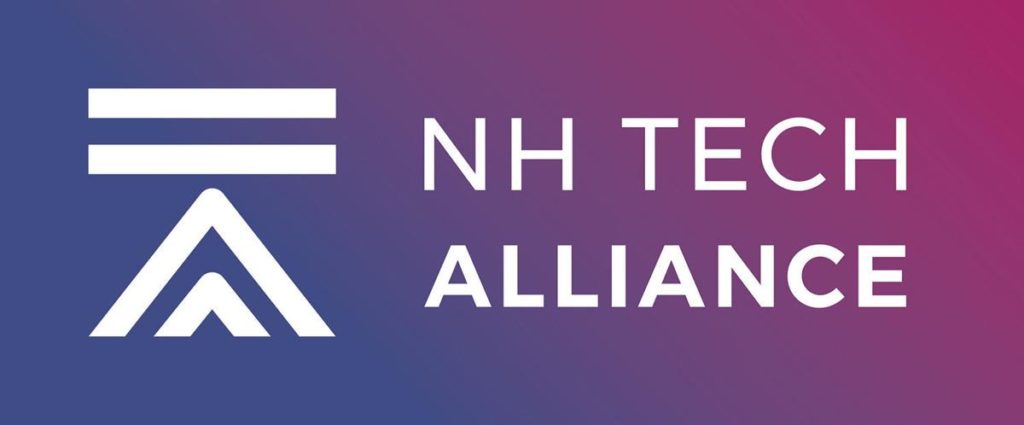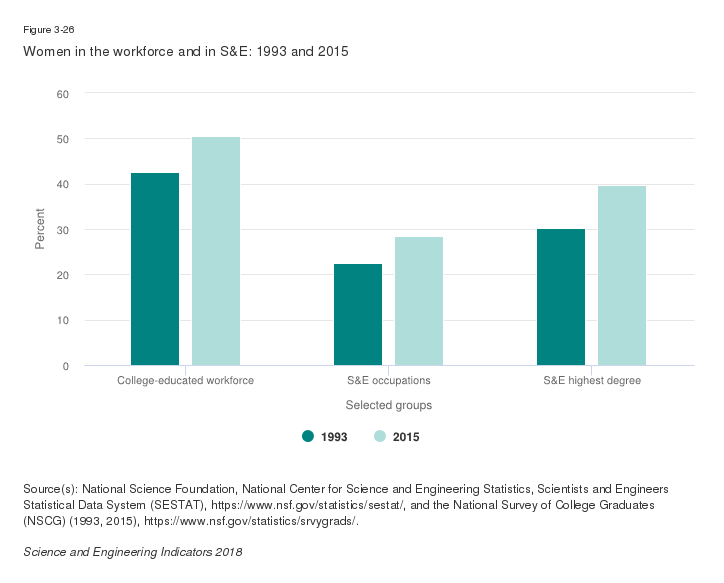As young people today explore a multitude of career paths, they often aren’t exposed to options outside of their immediate surroundings. If their parents work outside of tech, there’s limited opportunity to know which fields within the industry might be a great fit for their strengths. The TechWomen Ambassadors Week organized by the New Hampshire Tech Alliance builds a strong community of women who are enthusiastic about technology and supporting efforts for young women to explore STEM careers.
We caught up with Paige Yeater, TechWomen Ambassador and Mainstay’s Information Security Program Director, to learn more about the week and her experience teaching young women (and some young men!) about careers in technology. Paige led a panel and roundtable discussion at Winnisquam Regional High School on November 13 and Hollis Brookline High School on November 15 to bring attention to cybersecurity career paths.
Could you tell us more about the event?
Part of the Tech Alliance’s TechWomen|TechGirls Initiative, TechWomen Ambassadors Week connects women working in the technology industry with local high schools to teach young women about careers in technology. This year, we worked with 22 different schools and engaged approximately 1,000 students between grades 8 and 12 from across the state, which is amazing. The event is really story driven, we talk about technical and non-technical career options and how we got into our careers by sharing our experience and answering questions. There were 52 women in tech careers from around the state that presented this year.
What led you to become involved in the ambassadors week?
There were a few reasons that motivated me to get involved. First, I think that working in a male-dominated industry has its challenges. Right now, there is a huge gender gap in the technology industry, and I want to encourage young women to start thinking about the types of careers out there in the tech field. We need more diversity of ideas and experiences.
Highlighted by the National Science Board’s Science & Engineering Indicters 2018, we share during ambassador week that women make up half of the college-educated population in the United States, but only 28% of those are in science and engineering careers and so that’s really unbalanced. Back when I was getting started, I wasn’t aware of the diversity of careers within the technology space—outside of help desk and engineering roles. Over the last 15- or 20-years, things have changed greatly, and I really didn’t know that I had any technical aptitude because that wasn’t something that was available to me in high school. At the same time, you don’t need to be technical to work in cybersecurity or related fields, it takes more of a conceptual understanding of how IT and security work together within an organization. So, there are also non-technical roles in the technology field that are critically important to organizations being successful.
If we can get in front of high school students and help them understand what opportunities are out there, I think that is critical to the future workforce. We’re losing a portion of the workforce in New Hampshire but if we can help broaden the view of what is available in the state it could help to keep students here to begin their careers. In cybersecurity specifically, we have a national labor crisis on our hands. There is a huge deficit between the number of jobs and the talent pool. According to the National Institute of Standards and Technology, by 2022, we will have a deficit of 1.8M cybersecurity professionals. People are trying to get reskilled and there are initiatives nationwide to support building those skill sets. If we can get into the high schools and encourage some of these students on the right track for cybersecurity, that would begin to solve the problem at the root.
For young women considering their strengths and opportunities for career paths, there’s an important quote highlighted by former TechWomen Ambassador Alison Choquette during the event: “She cannot be, what she does not see.” What many young people struggle with is understand career paths that they have literally no exposure to at home. If we can share our experiences during Ambassadors Week, we can help educate them on technical and non-technical careers in technology while they’re evaluating their options for their future.
What was your role as a Tech Ambassador during the event?
After welcoming the group, we gave a presentation on technology careers in New Hampshire, the TechWomen|TechGirls Initiative, and our respective companies. My primary role was to lead a roundtable group discussion with about 15 high school students. We broke out into the roundtables as a chance to share stories about our careers and how we got to where we are now. As a woman in cybersecurity, I enjoy the challenge of describing our industry and my role to high school students that likely have little to no awareness that this field even exists. It can be a challenge to describe cybersecurity in a way that they can relate to in their own lives and experiences.
How do you overcome that challenge of describing cybersecurity careers to this age group?
Since they don’t necessarily have the context or awareness to fully grasp the cybersecurity field in a meaningful way, I like to relate to something they do understand through an analogy. There are two analogies that I typically use; first, we’re trying to help organizations follow the rules. Organizations like hospitals need to keep your information private and that privacy rule is called HIPAA. We help the hospital ensure that they’re keeping your information private and help them follow the rules to ensure that they have training and guidelines to make sure everyone in the hospital is following the rules. Put simply, cybersecurity specialists help people in hospitals and other fields follow the rules when it comes to sensitive information.
Second, cybersecurity specialists help manage risk for an organization just like you try to keep your house safe by keeping bad people out. We think about this like how somebody might try to break into your house. If you have most of your windows and doors locked, but one window is still open, the burglar is going to try to get into your home through that window. In cybersecurity, we put rules and systems in place to make sure all of the windows and doors are locked in your physical and technical environment so that no burglars can get in and information can’t get out.
These analogies really seemed to resonate with the group.
What was most surprising to you during your roundtable discussion?
There are so many high schoolers that have a very clear sense of their career goals. Not all, but there were definitely some that knew exactly what they wanted to do and how they were going to get there.
Surprisingly, there was a broad consensus that most high schoolers want a career where they do not have to work in an office. In a technical, connected world, they know all about remote work and some of the benefits of not being tied to an office. When I was their age, it never occurred to me that this was even a possibility and now it’s a key benefit they seek when considering career paths!
If there’s one takeaway you hope to have left with the students, what would that be?
Primarily, the understanding that having a career in technology doesn’t mean that you’re an engineer or you’re writing code (which are both amazing and noble professions), but there is so much that you can do in technology that’s much broader than only being in a technical role. We must begin to change that narrative because I think even today with all the careers out there, I don’t think a lot of students really understand the other career paths within technology. There was one girl in my group who had a parent that worked in cybersecurity at their company, she hadn’t even considered a similar career path because she didn’t fully understand what they did. After our discussion, she said it didn’t sound so bad. My hope is that this one discussion sparked interest for a few girls to explore careers in cybersecurity.
The other major takeaway was that they need to make sure they have secure passwords which is very relevant to their lives these days. I tried to convey a bit of practical experience as well.
With kids today needing passwords and email access even during the school day, how’d they respond to the password lesson?
Most of the students weren’t aware of what phishing emails were or why they were getting them. This was concerning to me when we are providing students with school email accounts and they’re also opening personal email accounts for games they play at home. They’re easily enticed with “free Xbox codes” and could unknowingly click on a button in an email and get hacked, which then spreads to family and friends. It’s important for them to begin to learn about potential threats and the practices that can keep their information safe.
This reminds me of a funny story with my own son, he had to set up a new password for his Fortnite account and his buddy said, “Oh, just create a password like password 123.” My son responded with the best answer possible, “No, my mom’s in cybersecurity, my password has to be 14 characters.”

TechWomen|TechGirls is a NH Tech Alliance initiative focused on building a strong community of female professionals enthusiastic about technology and supporting efforts where girls are exploring STEM as a career or area of study. TechWomen|TechGirls holds programs for professional women to connect, educate and explore ideas around career development, technology initiatives and innovation. The community also deploys volunteers and mentors to support academic STEM initiatives and events for girls happening all over New Hampshire. Learn more: https://nhtechalliance.org/nhhtc-events/techwomentechgirls/

